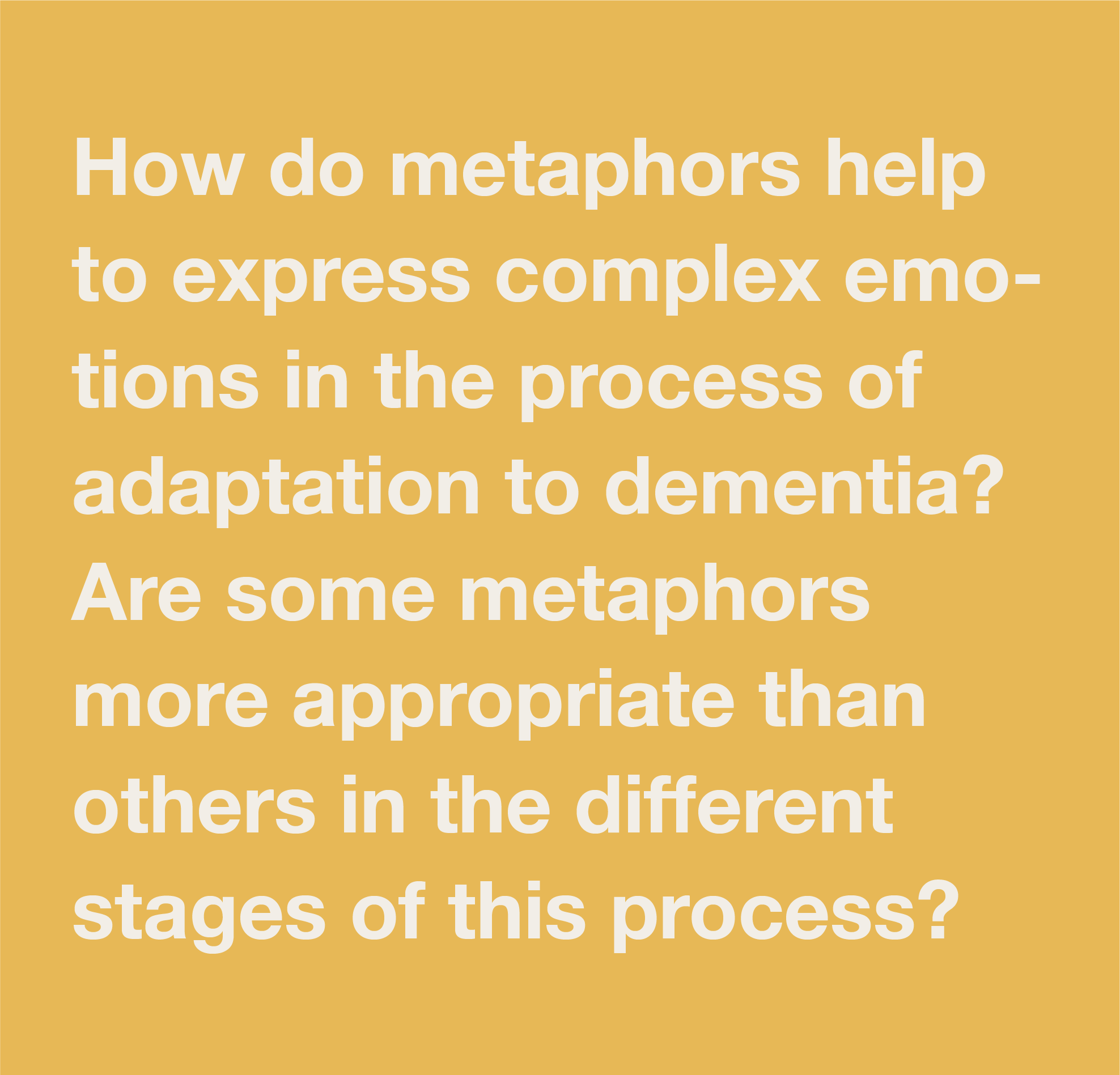Metaphors
Study Three – Metaphors and emotion-focused coping strategies (undergoing)
Background
Adaptation to dementia has been described as a dynamic and dialectical process of dealing with the changes and the emotional drawbacks brought by dementia (Buggins et al., 2021) – for example, loss vs growth, passivity vs proactivity and fear vs pleasure. When dealing with the distress caused by their illness, people with dementia can find it especially difficult to express their emotions. Dementia research has shown that different metaphors can help people with dementia to verbally express their needs and the complex emotions arising in the process of adaptation to illness and the consequent development of therapeutic alliance in healthcare (Castano, 2020; Johannessen et al., 2014)
Objective
Clarifying the role of metaphor as a potential tool to verbally express emotions in the different phases of adaptation to dementia.
Methodology
We will conduct a critical metaphor analysis (Charteris-Black, 2004) by identifying (MIPVU; Steen et al., 2010), interpreting and explaining the metaphors that people with dementia use in the different phases of adaptation to dementia.
Practical application
The findings of this study may help to emotionally support people with dementia in their resilience trajectories: finding words for their complex emotions and, consequently, better communicating their needs to informal and professional caregivers.

